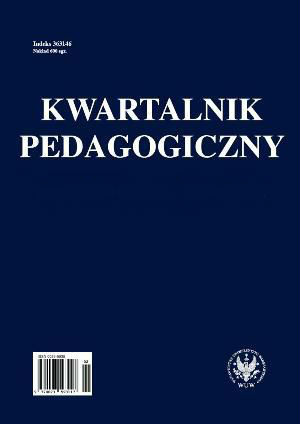PISA in Polen – braucht man die Vergleichsuntersuchungen?
Pisa in Poland – Do We Need Comparative Research?
Author(s): Aleksandra SanderSubject(s): Education
Published by: Wydawnictwa Uniwersytetu Warszawskiego
Keywords: pedagogika; studium porównawcze
Summary/Abstract: Although Poland is one of thirty OECD countries, the PISA research meets with moderate interest. The author suggests that the Programme for International Student Assessment (PISA) is an excellent opportunity to monitor the course of the Polish educational reform and adjust our national education system to the modern trends in the development of education. Research results may also provide a chance to engage in a public debate on education which would reveal different expectations, both internal – the ones of students, teachers, and parents and also external ones – i.e. the education policy. In her article the author focuses on the results of the 2006 PISA comparative study, which mainly measured comprehension skills in natural sciences. The overall result achieved by the Polish students is 498 points, which does not diverge significantly from the results achieved by the youth examined in other OECD countries. However, an analysis of the results of Polish students in different types of skills shows significant differences reflecting some weaknesses of Polish schools, both at lower (gimnazjum) and higher secondary school levels. The 2006 PISA study also addressed the problem of the socio-economic background of students and its influence on their school achievements. The author also reveals some of the benefits that can come from considering the comparative perspective of international research for the national education system in the process of globalization and while realizing the concept of Lifelong Learning.
Journal: Kwartalnik Pedagogiczny
- Issue Year: 217/2009
- Issue No: 3
- Page Range: 83-99
- Page Count: 17
- Language: German
- Content File-PDF

